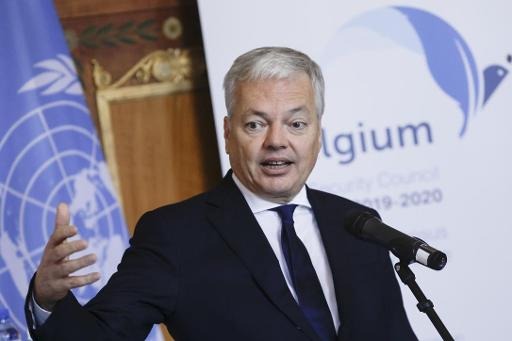The death penalty “disproportionately” affects disadvantaged and minority groups in the places where it remains in force, noted the Minister for Foreign Affairs, Didier Reynders. He was speaking on Tuesday to the United Nations in Geneva. “This should not exist in the 21st century,” he stressed.
During a UN debate around discrimination linked to the death penalty, the Minister spoke on behalf of the eight author countries that drafted the resolution forming the basis for the panel. These were in particular France, Switzerland, Mexico and even Benin. Despite the increase in the number of states abolishing the death penalty, capital punishment still applies in some parts of the globe, he regretted.
He expressed special concerned for those parts of the globe where apostasy (abandoning or renouncing a particular religious or political belief), blasphemy (the action or offence of speaking sacrilegiously about God or sacred things), adultery or homosexual relationships are capital offences.
“The application of the death penalty in these cases takes on a particularly discriminatory nature. It exclusively targets some segments of society, owing to them exercising their fundamental rights,” he said.
Didier Reynders raised the inextricable link between poverty and the death penalty owing to the costs of legal proceedings, and the lack of legal knowledge to face the criminal justice system. Racial, ethnic and sexual minorities, foreign nationals as well as women are particularly affected by the “disproportionate” application of this sentence.
"Above all, the death penalty is a serious violation of human rights, in particular, the right to life,” continued the Minister. “It is a cruel and irreversible punishment which infringes human dignity.” Its abolition is not a matter of culture but of political will, said the Minister for Foreign Affairs. "We have to move on from the position of simply a form of justice based upon killing.”
Belgium and its partners have even gone as far as criticizing the use of arguments of “based purely upon security” to justify capital punishment, notably the fight against terrorism and drug trafficking.
The UN High Commissioner for Human Rights, Michelle Bachelet, who the Minister met before this debate, is pleased with the progress of the abolitionist movement, and called upon states to “get on the right side of History.” Currently, some 170 have abolished the death penalty, instituted a moratorium on its application or suspended executions for more than ten years.
From Wednesday, Belgium will hold the seventh World Congress Against the Death Penalty, the most significant global capital punishment abolitionist event.
The Brussels Times

